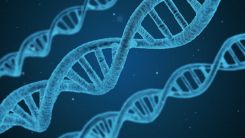
Staff Reporter

Tumbleweed Tornado Spotted Near Hanford, Washington

New Research Reveals Compound That Eliminates Chronic Pain in Mice; Promising Development for Medicine
Ingenuity: NASA's Mars Helicopter Will Attempt First Powered Flight On Another World

Oncology Breakthrough: Researchers Unveil New Blood Test Cancer Screening Before Symptoms Appear

Looking for a Reusable Face Mask? Here’s Where You Can Buy Online

Name This Beauty and Win $8,400: Heart-Shaped Sink Hole Found Recently in China
COVID-19 is as Dangerous as Ebola with 4 out of 10 Dying and Over Half on Ventilators Perishing: Study
Serendipity: Photographer Captures Once-In-A-Lifetime Meteor By Accident
Llama vs COVID-19: Its Antibodies Are Used to Bind to SARS-CoV-2's Spike Protein to Stop Infecting Cells

18 Amazing Videos of Animals Throwing A Party As Humans are in Lockdown
Remdesivir: No Timeline Yet As To When FDA Will Approve Its Use Despite Succes on Gilead's Phase 3 Trial

TOP PICKS: The Best Anti-aging Serums for 2020

WATCH! Male Polar Bear Kills Female Partner In Front of Zookeepers After Refusing to Mate
Japan Experts Regret Early Lifting of Lockdown After 135 New Cases of COVID-19 Are Reported in One Week

[VIDEO] Spinosaurus, the "River Monster": First Known Swimming Dinosaur, Scientists Claim

Lunar Meteorites For Sale: Fifth Largest Moon Rock Found on Earth Up For Grabs For $2.5 Million
Niger Reports New Polio Outbreak As Vaccination is Suspended Due to Coronavirus

[WATCH] Bioluminescence: Surfers Spotted Glowing Dolphins at the California Coast

Researchers Detect Airborne Coronavirus in Wuhan Hospitals Especially in Areas Where Staff Take Off PPEs

Top Picks: Best UV Sunglasses for Men and Women Available on Amazon

Artificial Intelligence And Everyday Lifestyle

2020 Possibly the Hottest Year Ever Despite Air Pollution Decline Due to COVID-19 — NOAA
Thousands of Flamingos Have Painted India Pink During Lockdown

7,500 KM in 7 Days From Africa to England: Cuckoo Sets Flying Record During Migration
1 Kilometer Ozone Hole Above the Arctic Has Finally Closed Due To Polar Vortex Warming

[PHOTOS] Meet Mr. Bigglesworth; the Adorable Hairless Bunny With a Big Personality
Alcohol Poisoning: Over 700 People out of 5,000 Poisoned in Iran Died Amid False Rumors Methanol Cures COVID-19

2-year-old Boy Suffering From New Inflammatory Syndrome Related to Coronavirus Had a Blotchy Rash that Turned Black

Monkeys in Montana Injected with Oxford's Coronavirus Vaccine Were Unscathed Despite Extreme Exposure
Most Popular

Catch The Blood Moon: Where and When to See the Total Lunar Eclipse on March 3, 2026

Rare Blood Moon Lunar Eclipse Illuminates the Skies Over North America

The Neuroscience of Habit Formation: What Behavior Science Reveals About How the Brain Builds Routines

Carbon Capture to Fuel: Innovative Catalysts Transforming CO₂ into Clean Energy




